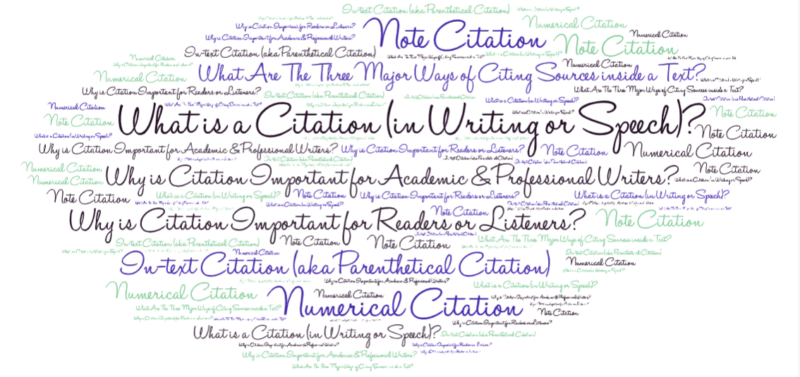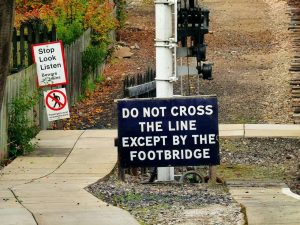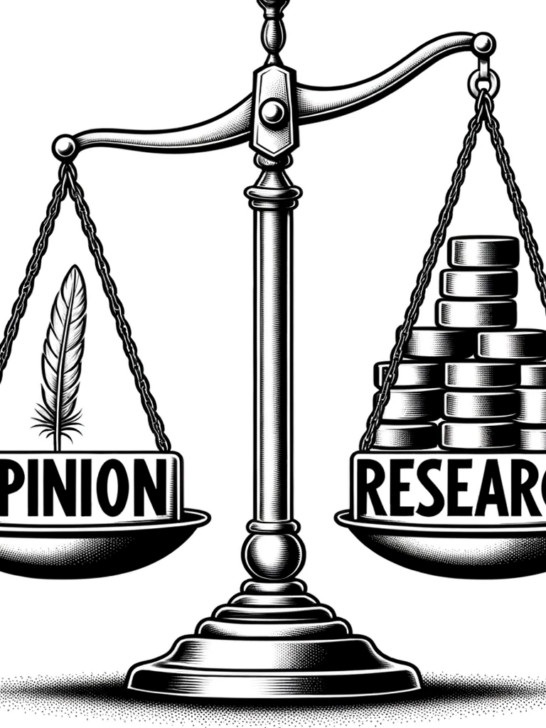Rhetoric is a broad term that can have many different meanings, from describing the word choices that a speaker uses to sometimes meaning all forms of communication (Keith & Lundberg, 2018). With such a broad definition, it may be tough to see why it’s important to study rhetoric. Sure, it may be obvious why someone like a professional speaker should know how to use their words effectively, but why should anyone else, such as someone going into a STEM field, learn about how language is used to convey ideas?
Rhetoric is more useful than it first seems. Modern rhetoric focuses much more on how an audience relates to a speaker than classical rhetoric, which focuses almost exclusively on the speaker’s role (Keith& Lundberg, 2018). In modern rhetoric, your job as an audience member is to interpret the message a speaker is putting forth. It’s possible that this message is weak and relies on fallacies and half-truths to convince an audience of something. If this is the case, the audience needs to be able to realize it and sift through these components of the message to focus on the speaker’s true message. This will make it harder for a speaker to sell lies or deception.
Some college degree programs even require students to study rhetoric. Personally, I’m an undergraduate student in an aerospace engineering program. Our rhetoric class put an extra focus on scam artists and cult leaders. We analyzed the tactics that these people use to try and gain control over people’s lives and cause them to act in their own worst interest.
This knowledge of the tactics that speakers can use can make it obvious when a weak argument is being propped up by emotional or personal language. For example, think of a politician. In trying to convince their constituents to vote against allowing skateboards to be used on the sidewalk in a busy part of the city, they might say, “If we allow skateboards, then before long we’ll have to deal with bikes, motorcycles, and eventually cars on the sidewalk!” However, an audience member who has studied rhetoric would see that this is an example of the slippery slope fallacy. This argument doesn’t actually address the issue that’s being debated and instead tries to scare an audience into believing that this one event will begin an inevitable spiral of increasingly more significant effects. Similarly, an argument could be weak due to misuse of facts and data. The same politician could say, “Injuries due to skateboard use are on the rise,” without saying that this only means that four people were injured on skateboards in the last week versus three the week before. If every member of this audience was knowledgeable on rhetoric, then they could ignore faulty arguments or do extra research into the matter instead of taking everything the speaker says at face value. By knowing how politicians, businesspeople, and other speakers use language to convince people, you will be less susceptible to manipulation and lies.
STEM students and professionals can gain a lot by studying rhetoric. It’s no secret that non-technical considerations, such as budget, can heavily influence the development of a project. However, this can lead to important decisions being made based on personal decisions instead of objective facts. Because of this, it’s important to be able to see when these facts are being covered up or downplayed. A great example of this was the Space Shuttle Challenger disaster. NASA was under pressure to meet tight deadlines, and this particular launch had been delayed twice before. Because of this, executive-level staff were being pushed to launch as fast as possible. On the day of the launch, the weather outside was far colder than the shuttle could withstand for launch. Engineers who were knowledgeable on the limitations of the shuttle repeatedly told their managers that they were concerned for the crew’s safety. However, the executives who were in charge downplayed these concerns in favor of launching anyway. They used rhetoric to create a false reality, a reality where the shuttle was safe to launch, then convinced themselves that it was true. At one point, the Vice President of Engineering for the contractor whose part eventually failed was told, “Take off your engineering hat, Bob, and put on your management hat” (Perelman, 2015). This small sentence, a tiny piece of rhetoric, was enough to completely change the Vice President of Engineering’s reality and caused him to tell NASA that it was safe to launch. Because of the executives’ willful decision to change their reality, seven astronauts were killed, and the shuttle program was put under massive scrutiny. If the decision had instead been made based upon objective facts and not by people using rhetoric to hide the truth, then this tragedy would have never occurred.
The Challenger disaster shows how rhetoric can cause enormous harm. However, rhetoric can also be used to save people’s lives. All uses of language are rhetorical. Emergency dispatchers must use rhetoric to quickly gain information from distraught people and then give that information quickly and accurately to first responders. The speed and accuracy of this information can mean the difference between life and death. Similarly, hostage negotiators use rhetorical skills to save lives. In a hostage situation, people on both sides are tense and are likely
to react violently to mistakes in communication. Therefore, it is the hostage negotiator’s job to use rhetoric carefully to save as many lives as possible.
Rhetoric also doesn’t have to be a matter of life and death. For instance, rhetoric can be used to convince a partner to go to a specific restaurant or location for a vacation. These are just two examples of everyday uses for rhetoric. You could use an emotional appeal and remind your partner about good memories at the restaurant, or maybe you could utilize facts to talk about your preferred vacation destination, describing how the flight is cheaper and the hotels have higher ratings. Knowing how to use rhetoric, and how to protect yourself against the misuse of rhetoric, is a vital skill to be able to navigate the modern world. Language can completely change how you perceive the world around you, so knowing how language works at its core can keep your view of the world much more grounded in objective truth. This gives you the cleanest information, which in turn lets you make the best decisions. Thanks to modern communication technologies such as texting, new ideas are able to spread, no matter if they’re good or bad ideas. Being able to filter these is key to keeping you protected against someone who is charismatic but has no substance to their arguments or claims.
References
Keith, W. M., & Lundberg, C. O. (2018). 2: Rhetoric and the Audience. In The Essential Guide
to Rhetoric (2nd ed., pp. 12–25). essay, Bedford/St. Martin’s.
Perelman, L. (2015). The Rhetoric of a Major Malfunction: The Institutional and Rhetorical
Dimensions of the Explosion of the Space Shuttle Challenger. lesperelman.com. Retrieved
April 23, 2023, from






















